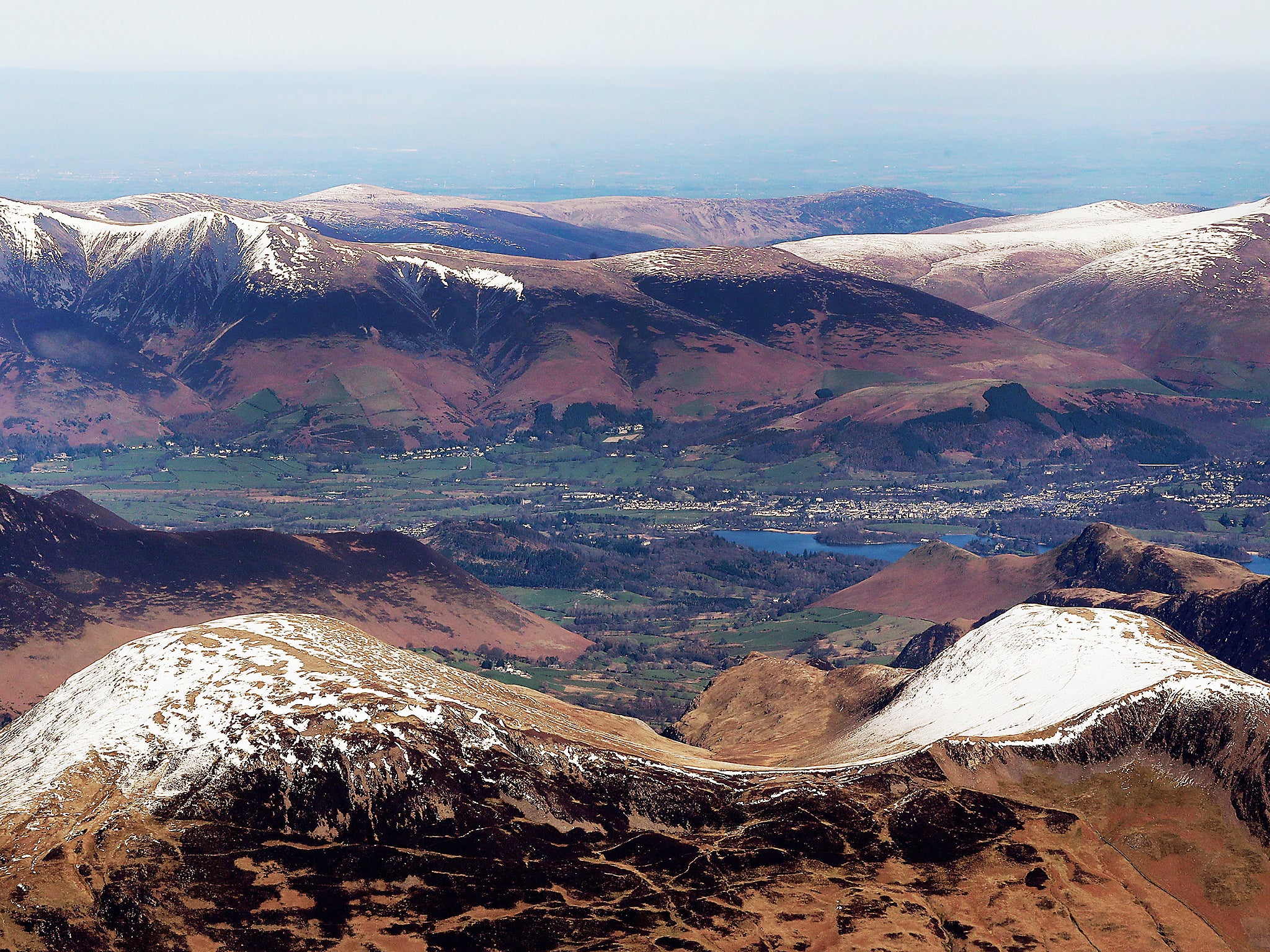Lake District awarded Unesco World Heritage status in recognition of its natural beauty
"A priceless and irreplaceable asset, not only to the UK but to humanity as a whole"

The Lake District has been awarded Unesco World Heritage status, placing it alongside wonders of the world such as the Grand Canyon, the Great Wall of China and the Taj Mahal.
The decision was made at a meeting of United Nations cultural body Unesco in Krakow, Poland, where 33 different sites were under consideration.
The region was praised by the committee for the inspiration that its natural beauty has provided for generations of writers and artists including children’s author Beatrix Potter and poet William Wordsworth, who described the lakes as "the loveliest spot man hath found".
The 885-square-mile beauty spot becomes the 31st place in the UK and its overseas territories to make the list, having bid for the recognition since 1986.
Other UK sites on the Unesco list include Stonehenge, Durham Castle and Cathedral, the city of Bath, the Tower of London and the Giant’s Causeway.
Read more: Best Lake District hotels
The committee suggested the impact of tourism be monitored and requested improvements be made in the conservation of the area, which is visited by around 18 million people a year.
It is home to England’s largest natural lake – Windermere – as well as its highest mountain, Scafell Pike.
Lord Clark of Windermere, chair of the Lake District National Park Partnership which put together the bid, described the decision as “momentous”.
“A great many people have come together to make this happen and we believe the decision will have long and lasting benefits for the spectacular Lake District landscape, the visitors we welcome every year and for the people who call the National Park their home,” he added.
Helen Maclagan, culture director at the UK National Commission for Unesco, said the Lake District was “a priceless and irreplaceable asset not only to the UK but to humanity as a whole”.
The bid was formally entered by the Department for Digital, Culture, Media and Sport and Historic England and was the UK's only submission in 2016.
Steve Ratcliffe, director of sustainable development at the Lake District National Park, said the application had been a “long time in the making” and he was “incredibly proud” of the landscape which has been shaped by nature, farming and industry.
He told the committee: “The Lake District now becomes an international and global property and we look forward to working with you and our communities to make sure this site inspires future generations around the world.”
Nigel Wilkinson, managing director of Windermere Lake Cruises, said he was hopeful the Unesco status would benefit the area.
“What we really hope is it will act as an economic driver and will grow the value, not the volume, of tourism by giving people more... reasons to make day visits and sustained visits," he said.
Harriet Fraser, a writer and patron of Friends of the Lake District, said: “It's the most beautiful district but it has a very deep culture which is largely hill farming but also conservation.”
John Glen, minister for arts, heritage and tourism, said: “The Lake District is one of the UK's most stunning and ancient landscapes and I am thrilled it has been granted World Heritage Site status.
”It is a unique part of the world that combines a vibrant farming community with thousands of archaeological sites and structures that give us an amazing glimpse into our past.
“This decision will undoubtedly elevate the position of the Lake District internationally, boosting tourism and benefiting local communities and businesses.”
Liberal Democrat leader Tim Farron, whose Westmorland and Lonsdale constituency is in south Cumbria, said: “This is fantastic news for our area, and for the local tourist economy.
”This well-deserved status is a formal recognition of the outstanding natural beauty of the Lake District, and will help to further promote our area as the UK's leading rural tourist destination.
“However, it is vital that the Lake District remains a viable place for local people to live.
”This decision is about protecting and promoting the natural and cultural heritage of our area, and must not be used as an excuse to freeze in aspic our vibrant rural communities.
“The Lake District must be a place where local people can afford to live, raise a family and find work so that rural communities can thrive.”
The Press Association contributed to this report
Join our commenting forum
Join thought-provoking conversations, follow other Independent readers and see their replies
Comments
Bookmark popover
Removed from bookmarks